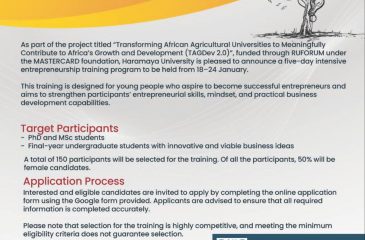Haramaya University and Brooke Ethiopia Host Veterinary Medicine Refresher Training
Haramaya University’s College of Veterinary Medicine, in collaboration with Brooke Ethiopia, hosted refresher training on essential veterinary medicine for Maya City animal health professionals.
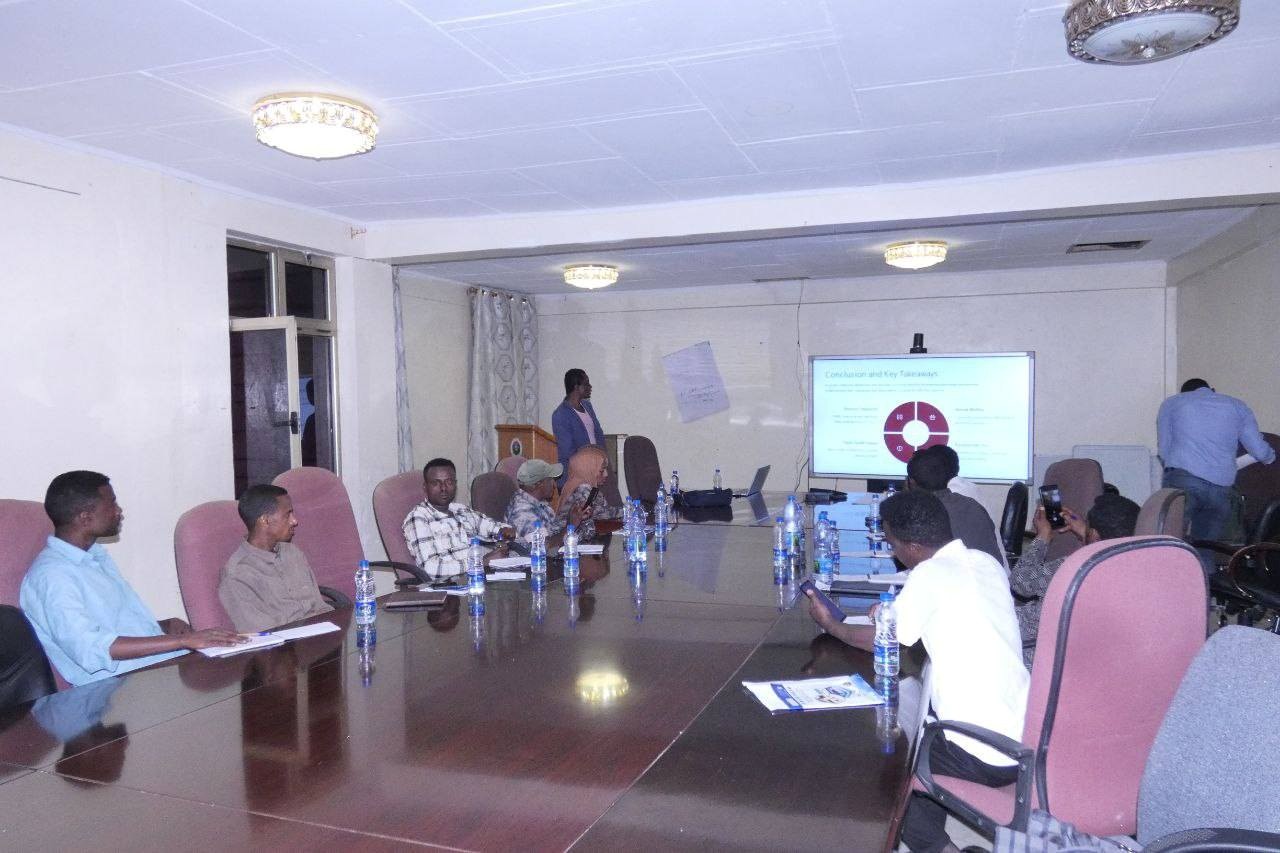 The training aimed to equip professionals with updated knowledge and skills to enhance animal health management in the region.
The training aimed to equip professionals with updated knowledge and skills to enhance animal health management in the region.
Dr. Kedir Sali, Brooke Ethiopia’s Focal Person at Haramaya University’s College of Veterinary Medicine and a trainer at the event, highlighted the longstanding partnership between the two organizations.
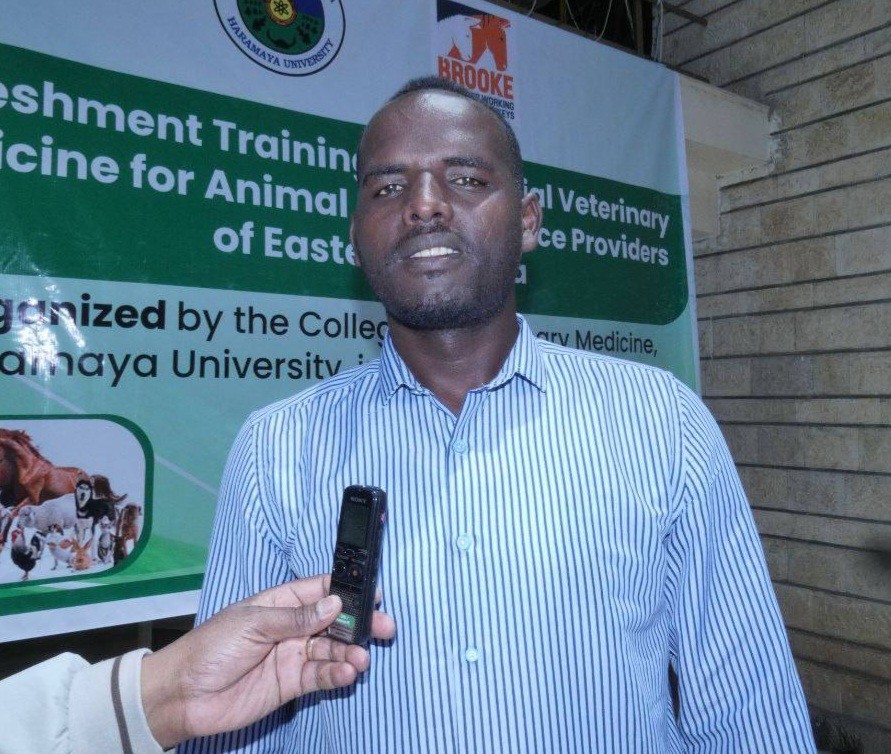
Dr. Kedir emphasized the critical need for continuous professional development in the veterinary field. “Science is dynamic in nature, and animal health professionals must update themselves from time to time,” he stated. He underscored the immense responsibility veterinarian’s bear, especially when treating animals that cannot communicate their ailments.
“Treating animals requires knowledge and skills to give the appropriate drugs for the appropriate disease. Regarding this, it is very important to provide refreshment training to animal health service providers on the updated essential veterinary medicine lists, which serve as a reference for treating and managing diseases.”
The training focused on showing participants how to access and utilize up-to-date information on essential veterinary medicine, familiarizing professionals with species-specific drugs, enhancing their awareness of current trends and advancements, empowering them to select appropriate medications based on specific factors such as species, age, and health condition, and Improving their ability to provide educational guidance on drug administration and health monitoring, ensuring effective animal health management.
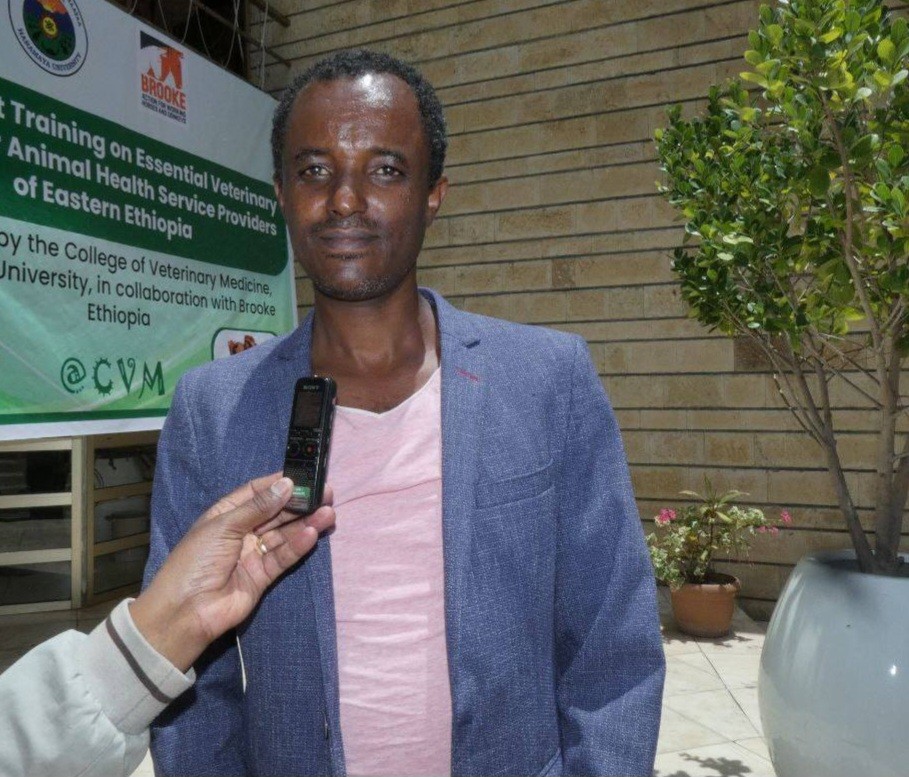
Dr. Dinaol Belina, Grant Management Capacity Building Coordinator at Haramaya University and another trainer, explained that the training specifically aimed to enhance knowledge and practical application of the recently nationally approved 2024 Lists of Essential Veterinary Medicines and Vaccines (EVMs) among animal health professionals.
He detailed the comprehensive program, which addressed critical issues including the irrational use of veterinary drugs and its contribution to antimicrobial resistance (AMR) challenges. Participants gained insights into the structure and purpose of the EVMs list and reviewed essential medicines and vaccines for various livestock species, including cattle, small ruminants, poultry, pets, equine, and camels.
The training also explored the crucial roles of field professionals and agricultural offices in implementing the EVMs. Interactive sessions were included to foster a deeper understanding of the EVM list’s practical utility through real-world scenarios and best practices.
Since its establishment, Haramaya University’s College of Veterinary Medicine has demonstrated a strong commitment to community service. The college actively engages in initiatives that translate academic knowledge into practical benefits for the livestock sector and the wider community, aligning with its mission to support national development goals.
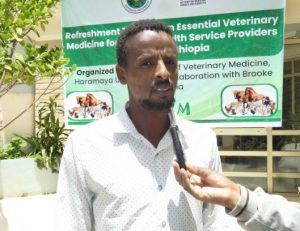
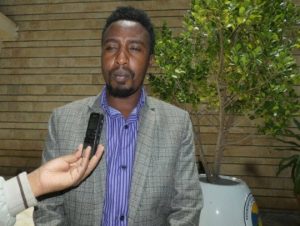
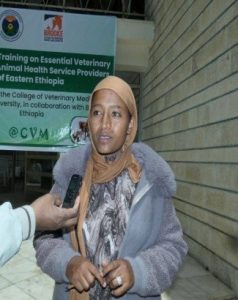
Trainees, including Dr. Abdi Abrahim, Mrs. Ayinalem Mekash, and Dr. Ahmed Yasin, expressed their gratitude for the timely and impactful training. They collectively appreciated how the program helped them overcome professional knowledge gaps and equipped them for their future careers.
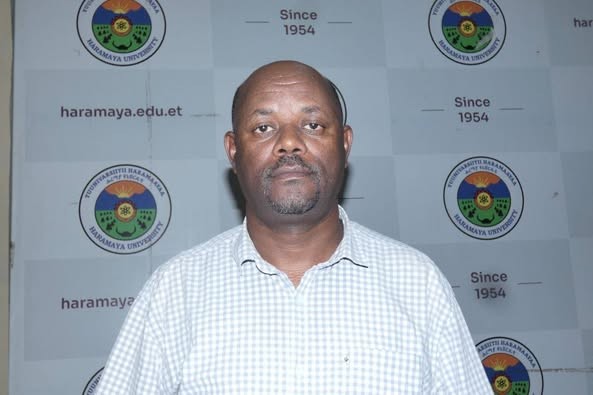
In his closing remarks, Dr. Amare Eshetu, Dean of the College of Veterinary Medicine, reiterated that the training aimed to strengthen the knowledge and skills of animal health professionals. He noted that the program covered essential topics such as species-specific drug application, pharmacology, dosage calculation, and practical use of essential veterinary drugs to improve the quality and efficiency of veterinary service delivery.
Dr. Amare encouraged the participants to utilize their newly acquired knowledge to provide improved veterinary services to their communities and extended his sincere gratitude to the trainers, the College of Veterinary Medicine, and partner Brooke Ethiopia for their dedication in facilitating and delivering the training.
Such training will continue in Dire Dawa City and the Harari Regional State.
Reporter: Shemsedin Mohammad
Photographer: Tewodros Lishan
Haramaya University Public and International Relations Directorate

